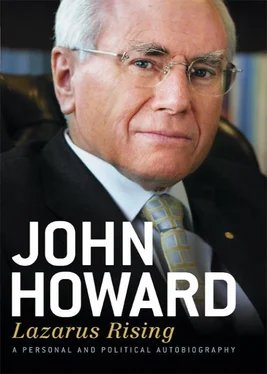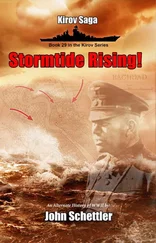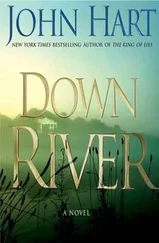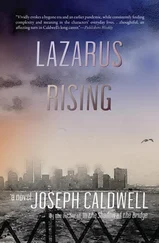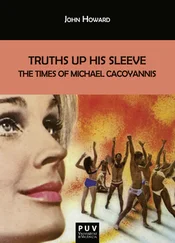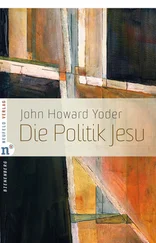Many years ago, drinking habits were different; women drank a lot less. It was very much a male pursuit. Men got drunk at hotels and staggered home, often to the great public embarrassment of their families. There was much less drinking at home than is the case today. For many women and children, the local hotel was anything but a place associated with warm conviviality.
Something else was to touch Mum’s younger years: that was sectarianism. She was a child of what was once called a ‘mixed marriage'; that is, her father was a Protestant and her mother a Catholic. After her mother’s death, although Mum had been baptised a Catholic, her father sent her to a Church of England Sunday school. There was subsequent estrangement with her mother’s family and, given the Catholic/Protestant divide of the time, that action of my grandfather had likely been a cause.
Mum was a good Christian, totally lacking any pretensions in her dealings with others. She was privately devout. Every night she would kneel at her bedside to say her prayers. Sadly, however, she was always self-conscious about the fact that she had been born Catholic, but raised Protestant. For people of her generation, regrettably, those differences mattered much more than would later become the case. For all of her life she retained what I thought to be an unreasonable suspicion of Catholicism. Then I was of a generation which, in the 1960s, would experience the welcome disintegration of sectarianism.
Mum had a sister, May, and a brother, Charlie, and after her father’s remarriage following her mother’s death, two half-brothers, Ted and Arthur. She spoke frequently of her affection for her stepmother, and how fortunate she had been in having her after losing her mother at such an early age.
Premature death returned to Mum’s family in a particularly tragic way, several months before I was born. Ted, who had been diagnosed with epilepsy at the age of 16, suffered a seizure while standing on Newtown Railway Station, in inner Sydney, and fell under an oncoming train. He died from the terrible injuries he sustained. To add to the family’s grief, May, Mum’s sister, was a passenger on the train.
Mum’s family never owned their own home, and always lived in rented accommodation in and around Petersham and Lewisham, inner suburbs of Sydney. I suspect that my grandfather was an unsuccessful punter, and that his gambling habits were strongly disapproved of by both his wife and his elder daughter. Whenever I visited their home as a young child there was a sad atmosphere. As I grew older, and learned more of the background, I understood why.
Grandfather Joe Kell was a great walker. When over 80 he would regularly walk from his home in New Canterbury Road, Petersham, to his daughter May’s place in Wardell Road, Earlwood, a distance of almost 4 kilometres. That is something he passed on to one of his grandsons.
Mum’s brothers, Charlie and Arthur, had both fought in World War II, Charlie in the army, and Arthur in the Royal Australian Air Force (RAAF). Charlie had been part of an army unit guarding the Cowra prisoner of war camp when the Japanese breakout occurred The experience permanently clouded his attitude towards the Japanese because of their behaviour during the breakout.
Charlie’s marriage had broken up by the time I was in my teens, and his only close family were his two sisters. Charlie had always drunk heavily, and his failed marriage only made this worse. I respected the way in which Mum tried to help him, having him home regularly, despite Charlie often being the worse for wear. Her tense reaction whenever he was affected by drink showed just how strongly her childhood experiences of alcoholism had affected her. She often told me that she thought Charlie had had a tough life, frequently mentioning the fact that he had spent the night of his 21st birthday sleeping under a bridge, whilst on the track for work in the Shepparton area of Victoria in the mid-1920s.
My mother and her sister May (Roberts) were very close. May did not marry until her early 40s and had no children. She lived in the same suburb as us and saw a great deal of our family, especially me. We formed a very close bond, as she also did with my brother Bob, when we were all a good deal older. May had a genuinely sunny and positive disposition. To employ a phrase typical of her generation, her life had been no ‘bed of roses', yet she always seemed happy with her lot. She was a wonderful woman, and like my wife’s mother, Beryl Parker, had an extraordinary capacity always to see the best in people. She was a special person and I remember her with very deep love and affection.
Lyall and Mona Howard had four sons: Walter (Wal), born in 1926, Stanley (Stan) in 1930, Robert (Bob) in 1936 and me in 1939. The Great Depression had its impact on family planning.
As best I could describe it, I grew up in a stable, lower middle-class home. When Dad went into business, establishing a garage with his father, he was able to make a reasonably comfortable living for our family. Mum was a full-time homemaker, who dedicated her life to the care and upbringing of her four sons. Mum and Dad were both conservative, patriotic Australians.
The house I grew up in was a Californian bungalow, built in the early 1920s. Earlwood, in Sydney’s inner southwest, was full of them. It was heavily settled after the Great War. Street names such as Flers, Hamilton, Dellwood, Kitchener and Fricourt were testament to that. It was a three-bedroom home, so until I was well into my teens I shared a bedroom with Bob. About my earliest memory was looking at the blackout paper which my parents had placed over the small casement window in the loungeroom. That must have been in 1942, when there were frequent blackouts in Sydney through fear of possible air raids.
Politics was talked a lot at home. From a very early age I listened to discussions about world events, as well as particular issues affecting Sydney and Australia. Being the youngest in the family, it was natural that I imbibed much from my parents and elder brothers.
Towards the end of 1949, I knew that there was an election coming up from the talk at home, seeing the newspapers and listening to the Australian Broadcasting Commission (ABC) news. Mum and Dad were both strong Liberals and had plenty of good things to say about Bob Menzies, then Leader of the Opposition, but soon to become prime minister and to stay in that position longer than any other person in Australian history.
Owning a garage, or service station, my father had been bedevilled from the war years onwards by petrol rationing. Dad would bring home the ration tickets and my brother Bob would join me in counting them on the breakfast-room table. I thought this was a lot of fun, and I missed it when it ended. My parents didn’t. Menzies’ 1949 election promise to remove petrol rationing attracted them greatly, and they were delighted when it was abolished.
Petrol rationing had been an understandable wartime measure, but in peacetime it was a real bugbear for anyone in my father’s business, and motorists generally. It was abolished for a period and then brought back shortly before the 1949 election.
The Labor PM at the time, Ben Chifley, was well liked. To his credit, his Government began the great postwar migration surge — then overseen by his Immigration Minister Arthur Calwell — which helped shape the modern Australia. He also launched the Snowy Mountains Hydro-Electric Scheme, which remains a national development icon.
But when it came to economics, the Chifley Labor Government, in the late ‘40s, remained locked in the wartime mindset of controls and micromanagement of the economy.
Chifley led a government which tried to nationalise the private trading banks. This move galvanised into action many supporters of free enterprise, and not just the banks. Everything had gone wrong for Chifley following his Government’s re-election in 1946. His attempt to nationalise the banks had been rejected as unconstitutional by both the High Court of Australia and the Privy Council. Massive strikes on the NSW coalfields in 1949 produced prolonged blackouts in Sydney. In the end Chifley had to embrace what for a Labor man like him must have been a nightmare: the use of troops on the coalfields to keep essential supplies moving.
Читать дальше
